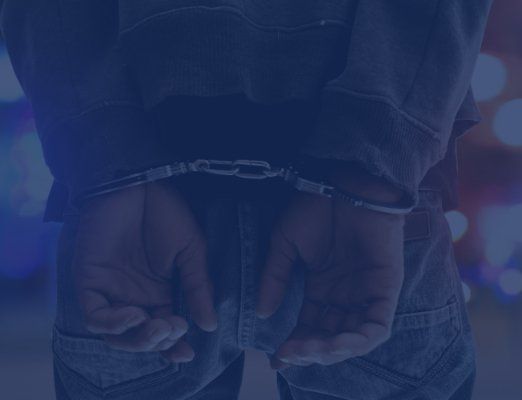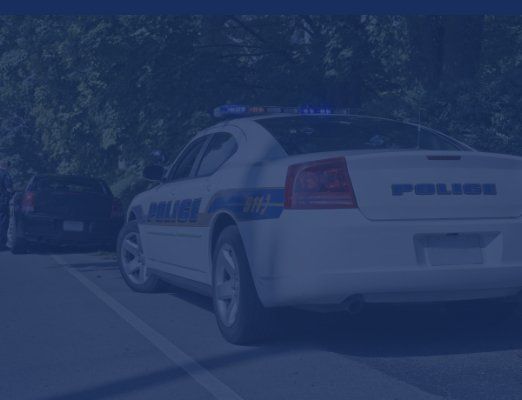Wilmington, NC Probation Violation Lawyer
When someone is convicted of a crime, receiving probation, instead of being sent directly to jail, maybe the best possible outcome. While probation allows you to serve your sentence with little-to-no jail time, it comes with its own challenges. When you are on probation, whether it is supervised or unsupervised, you must follow a strict set of conditions. If you violate any of these requirements, you could be rearrested. In the worst-case scenario, your probation can be revoked and you can be ordered to serve your entire active sentence.
To defend against any alleged violation, you should contact a probation violation defense lawyer at Goolsby Law Firm. We know these accusations are more complicated than they appear. Many people have minor, accidental violations or are confused about their requirements. A violation does not automatically mean you will be incarcerated, and with an experienced criminal defense attorney, you can and should fight back.
For a free consultation with Attorney Thom Goolsby, call 910-262-7401, send a text, or reach out online.
How to Win in Probation Violation Cases
Probation vs. Parole in North Carolina
Probation is an alternative to incarceration. You may be granted probation at sentencing, in addition to or in place of active jail time.
Parole is not the same as probation. Parole is an early release from custody for reasons like good behavior. Parole can also be based on resentencing issues. Parole is granted based on recommendations by the Parole and Post-Release Supervision Commission.
Both probation and parole require compliance with several conditions. If you violate one or more of these requirements, the Court is notified. There can be severe consequences. A probation or parole violation can lead to arrest, detention before your violation hearing, an active jail sentence or even new criminal charges.
Supervised vs. Unsupervised Probation
Unsupervised probation is typically for non-violent misdemeanors with no or minimum criminal record(s). The main benefit with unsupervised probation, besides not going to jail, is you do not have to check-in with a probation officer. In rare cases, you may receive unsupervised probation for a low-level felony, if you have an otherwise clean criminal record. Unsupervised probation may still come with conditions: drug/alcohol assessments, treatment, community service, payment of restitution, etc. The most important condition is to NOT to be charged with a new crime.
Supervised probation is a much stricter process. Offenders are assigned a probation officer, with whom you will need to meet on a regular basis. You will also be required to pay supervised probation fees.
Probation Conditions
Depending on the factors involved, you need to adhere to various restrictions as part of your probation. These are fairly consistent among probationers and include, but are not limited to:
- No new charges filed against you
- Maintain employment or enroll in school
- Obtain a GED or high school diploma
- Not traveling out of state without permission
- Submit to periodic searches
- Paying restitution
- Performing community service
- Complete substance abuse treatment
- Refrain from drug and/or alcohol use
- Regular drug/alcohol testing
- Complete an anger management program
- Paying child support
- Not absconding
- Adhering to a curfew
If you are sentenced to community or intermediate probation, then there are also additional terms that can be applied, including community service, electronically monitored house arrest, and substance abuse treatment and monitoring.
If you are accused of violating a regular or special probation condition, call a probation violation defense lawyer as soon as possible. This can be a scary time, but there are ways to defend yourself.
What Our Client Say
“I lost my carry concealed permit due to the misapplication of the law by law enforcement. My guns were taken from my home, and my permit was suspended. Thank you Thom Goolsby for standing up for the Second Amendment and my gun rights. You corrected the mistake of law enforcement, and I got my permit back. I appreciate your skill and advocacy.”
Criminal Defense Client
“Thank you Thom Goolsby for helping me with my case. I heard that you were a super attorney, and I heard right! Thank you for your attention to detail and for helping me with this important matter. Your office was always available to assist me, and your care and concern meant a great deal to me. If I ever need an attorney again, you will be the first person that I call.”
Personal Injury Client
“Thank you for walking me through the process for getting my open container and underage possession of alcohol charges dismissed. You arranged for a very simple deferred prosecution. It was easy to comply, and my record is now clean. I appreciate your excellent help!”
Criminal Defense Client
Common Types of Probation Violations
When individuals are accused of violating their probation, aside from new criminal charges or evading law enforcement, they are considered technical probation violations. This distinction can significantly influence the consequences. No matter the allegation, you should always work with an experienced probation violation defense attorney. There may be ways to have the violation dismissed or to avoid a harsh penalty, such as “Confinement in Response to Violation” (CRV).
At Goolsby Law Firm, we have represented probationers and parolees accused of:
FAILING A DRUG TEST
If you test positive for an illegal controlled substance, this is a new crime and a violation.
DRINKING ALCOHOL
The conditions of your probation may require you to refrain from imbibing alcohol. You may be required to wear a continuous monitoring system or submit to random testing. If you test positive, this would be a violation.
FACING A NEW CHARGE
If you are arrested and charged with any new crime while on probation, this is considered a violation.
MISSING A MEETING WITH YOUR PROBATION OFFICER
If you are under supervised probation and required to meet with a probation officer, missing an appointment can be reported as a violation.
NOT PAYING FINES, COURT FEES, OR RESTITUTION
If you are required to pay fines, court fees, or restitution to the victim of your crime, and you fail to do so according to the payment schedule, this is a violation.
NOT COMPLETING COMMUNITY SERVICE
Part of your criminal sentence may be to complete a certain number of community service hours within a period of time. If you fail to perform all or any of these hours, it is a violation.
FAILING TO FIND OR MAINTAIN EMPLOYMENT
A condition of your probation may be to find and keep a job or to stay in school. If you are unemployed or not enrolled in school, this can be a violation.
VIOLATING A NO-CONTACT ORDER
You may be prohibited from contacting or going near the victim(s) of your offense. If you contact someone in violation of a no-contact or restraining order, this may violate your probation.
VIOLATING CURFEW
You may be electronically monitored in relation to a curfew, which requires you to be at your residence during certain times.
ABSCONDING
The most serious of violations. It occurs when your probation officer claims you have completely broken off contact and fled the Court’s jurisdiction. In an absconding case, your probation officer will ask for revocation of probation and the activation of your entire suspended sentence.
Accused of a Probation Violation? Now What?
If your probation officer believes that you violated one or more terms of your probation, you face:
ARREST
A probation or police officer can arrest you immediately if they have probable cause of the violation or an officer may obtain a probation violation warrant for your arrest.
The law does not require that you be arrested for a violation. Instead, you may be given notice of the alleged violation and hearing. Whether or not you are arrested, you must attend a probation violation hearing. For unsupervised probation, you cannot be arrested unless you fail to appear at the hearing.
If you are arrested, call a probation violation lawyer right away. Attorney Thom Goolsby will immediately review and analyze your case and discuss the best next steps.
A PRELIMINARY HEARING
There must be a preliminary violation hearing within seven business days of an arrest, unless you waive this hearing.
During this hearing, the judge will determine whether there is probable cause that you violated a condition of probation. If the judge finds there is not probable cause, then you will be released and allowed to continue your probation. If a judge finds there is probable cause, there will be a final violations hearing.
You should have a lawyer at this hearing. You do not have to accept being jailed until a determination is made. There are ways to mitigate the consequences or demonstrate that probable cause does not exist.
THE FINAL HEARING
At this hearing, your probation officer needs to provide evidence that you violated the terms of your probation, although they do not have to meet the reasonable doubt standard. Your correctional officer only needs enough evidence to reasonably satisfy the Court that the violation happened.
Another way a probation violation hearing differs from a trial is that the rules of evidence do not apply. This difference makes the burden of proof much lower. It is very important to have an experienced probation violation defense lawyer who knows the process and how to effectively defend against unwarranted probation violations.
At your hearing, your probation officer will make a recommendation for the penalty you should face. You do not have to accept the recommendation. There are many potential outcomes and your attorney should fight for minimal consequences.
Potential Penalties for a Probation Violation
- Reinstate Probation: A judge can reinstate your probation under the same conditions whether or not a violation is found.
- Modify Conditions of Probation: A judge can reinstate your probation but under different and additional conditions.
- Termination: A judge can end your probation altogether.
- Extension: A judge may extend your term of probation for good cause, whether or not you violated probation, as long as you are not given more than five years of probation total. Or, a judge can extend your probation up to three years, and beyond the five-year total, if you agree, the extension is during the last six months of your original probation, and the extension is necessary for you to complete restitution or medical or psychiatric treatment.
- Transfer to Unsupervised Probation: A judge can transfer you from supervised probation to unsupervised probation.
- Contempt of Court: A judge may hold you in contempt of court, and in this case, the prosecutor must prove the contempt beyond a reasonable doubt. You can be jailed for up to 30 days.
- Special Probation/Split Sentence: If a judge finds that a violation occurred, you can be sentenced to special probation and required to submit to a term of confinement.
- Quick Dip Confinement: A judge can order you jailed for two or three days for a minor violation.
- Confinement in Response to Violation (CRV)<: If you are found to have committed a technical violation, a judge can order you to complete a longer period of confinement than a quick dip. A probation violation after a misdemeanor can lead to CRV for up to 90 days. A probation violation after a felony, on the other hand, removes the judge’s discretion and the mandatory sentence for a felony CRV is 90 days.
- Revocation: A judge can also suspend your probation and reactive your sentence, sending you back to jail or prison. If this happens, call a probation revocation defense attorney immediately to discuss appealing the decision.
Goolsby Law Firm Case Results



Call a Probation Violation Defense Lawyer Today
Let Attorney Thom Goolsby analyze what happened and discuss what the probation officer can and cannot prove. Attorney Goolsby will also talk with you about why the violation occurred. With more than 34 years of experience, he understands that many people have good reasons for why a violation happened. The purpose of pursuing a hearing is to ensure you get to present evidence and have a chance to tell your story.
Don’t just accept your fate when it comes to a probation violation. To learn more about fighting against unjustified allegations, call Thom Goolsby at 910-262-7401, or request a free consultation online.
FREE CONSULTATIONS 24/7
Contact Goolsby Law Firm Today
Like any quality criminal defense attorney, Thom Goolsby may be in court when you first call, but leave a voice mail or send a text. We’ll get with you as soon as possible, so we can go over what happened, evaluate the case, and explain what comes next.

